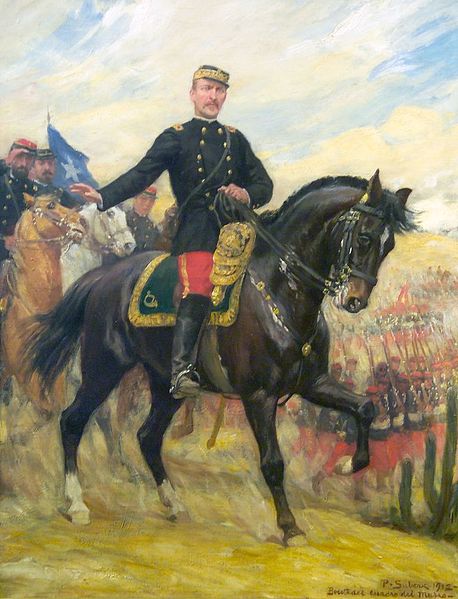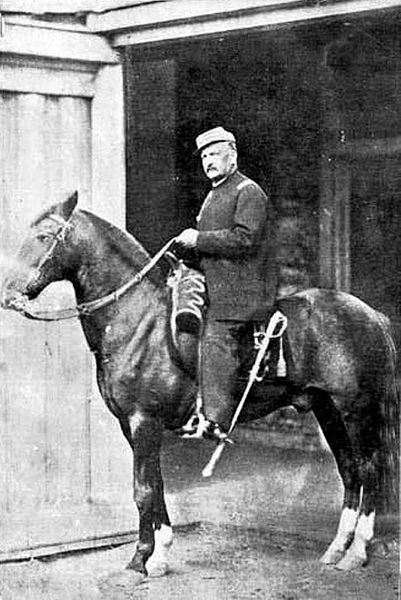The Battle of Tacna, also known as the Battle of the Peak of the Alliance, effectively destroyed the Peru-Bolivian alliance against Chile, forged by a secret treaty signed in 1873. On May 26, 1880, the Chilean Northern Operations Army led by General Manuel Baquedano González, conclusively defeated the combined armies of Peru and Bolivia commanded by Bolivian President, General Narciso Campero. The battle took place at the Inti Urqu (Intiorko) hill plateau, a few miles north of the Peruvian city of Tacna. As a result, Bolivia was knocked out of the war, leaving Peru to fight the rest of the war alone. Also, this victory consolidated the Chilean domain over the Tarapacá Department. The territory was definitively annexed to Chile after the signing of the Tratado de Ancón, in 1884, which ended the war. Tacna itself remained under Chilean control until 1929.
Battle of Tacna according to Diego Barros Arana's "Guerra del Pacifico"
Chilean infantrymen
Bolivian Colorados Regt. soldier
Burying soldiers after the battle
Manuel Jesús Baquedano González was a Chilean soldier and politician, who served as Commander-in-chief of the Army during the War of the Pacific, and briefly as President of Chile during the civil war of 1891.
Manuel Baquedano
Manuel Baquedano, by Pedro Subercaseaux.
Manuel Baquedano on horseback (1891)
Monument to Baquedano in Plaza Baquedano, Santiago.








